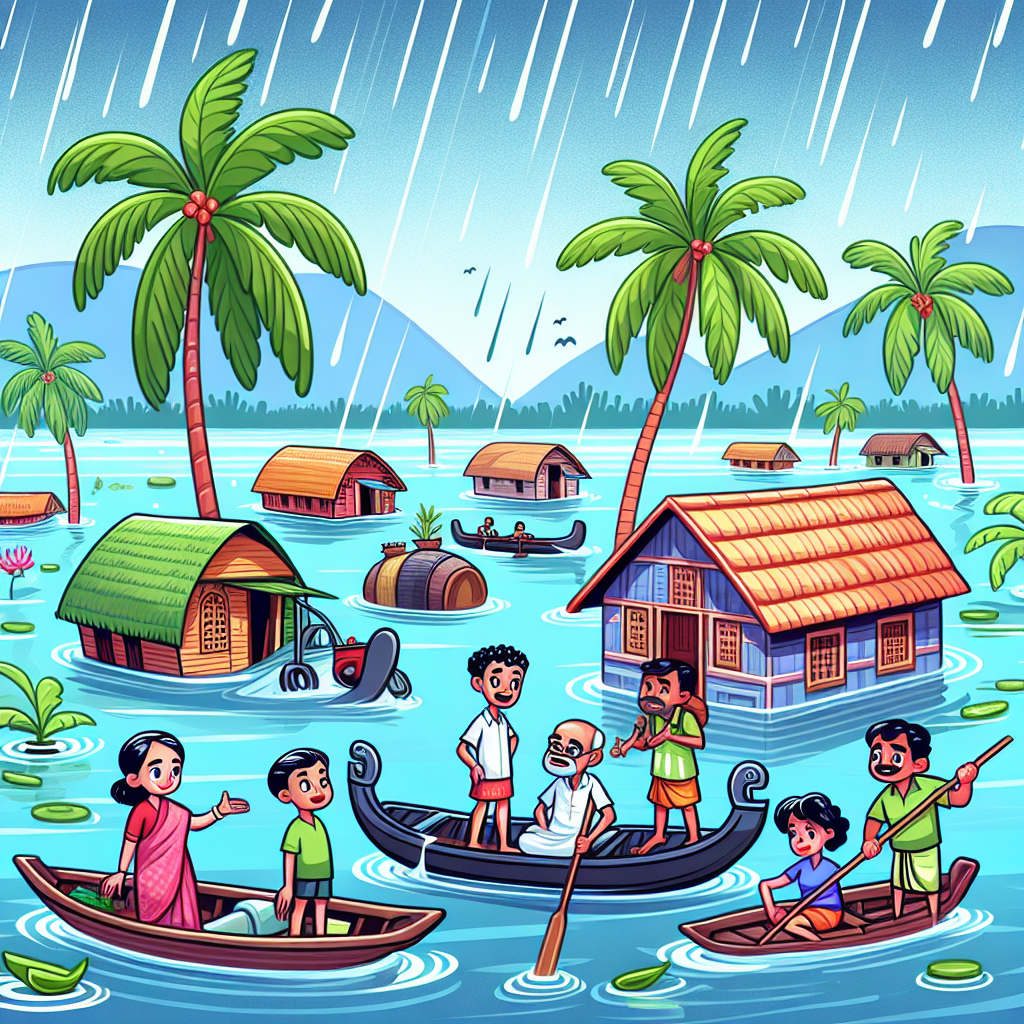Flood Havoc in Bangladesh: A Story of Resilience and Urgent Needs
In Bangladesh, relentless monsoon rain has caused devastating floods, affecting 1.24 million families and resulting in 23 deaths. With 5.7 million people still in urgent need of aid, the crisis underscores the severe impact of climate change on vulnerable regions. Relief efforts face significant challenges as authorities strive to provide necessary support.

The death toll from the devastating floods in Bangladesh, driven by relentless monsoon rains and overflowing rivers, has climbed to 23. Around 1.24 million families are stranded across 11 districts, officials reported on Monday.
As floodwaters slowly recede, many of the 5.7 million affected individuals remain isolated and in dire need of food, clean water, medicine, and dry clothing, especially in remote areas where blocked roads hinder rescue and relief operations. The Bangladesh Meteorological Department warned that flood conditions could persist if monsoon rains continue, as water levels are receding very slowly.
Approximately 470,000 people have sought refuge in 3,500 shelters within the flood-hit districts, with around 650 medical teams on the ground providing treatment. The army, air force, navy, and border guard are assisting with rescue and relief efforts. Large swaths of land remain submerged, posing a significant threat to crops if the floodwaters linger, officials from the agriculture ministry stated.
A 2015 World Bank Institute analysis estimated 3.5 million people in Bangladesh, one of the world's most climate-vulnerable nations, are at risk of annual river flooding. Scientists link the exacerbation of such catastrophic events to climate change. "Countries like Bangladesh, with negligible emissions and whose people have shown super resilience, deserve immediate funds to address the impacts of climate change and frequent disasters," said Farah Kabir, director of ActionAid Bangladesh.
"We need to recover from the losses and damage we have faced and build resilience to future impacts, embracing green development pathways." In Noakhali, one of the hardest-hit districts, 56-year-old Shukuri Begum lost her home as it was swept into a pond by floodwaters. Terrified, she fled with her grandchildren to a neighbor's house but couldn't stay long as it was no longer safe.
"I have a son with physical disabilities, and we couldn't bring him with us. We had to stack beds and leave him on top, hoping he would be safe. I don't know what's waiting for us," ActionAid quoted her as saying.
(With inputs from agencies.)
ALSO READ
Samunnati to Host 4th FPO Conclave Focusing on Sustainable Agriculture in Hyderabad
Cabinet approves Rs 2,817 cr digital agriculture mission: Union Minister Ashwini Vaishnaw.
Union Cabinet Approves Rs 2,817 Crore Digital Agriculture Mission
India's Digital Agriculture Mission: Transforming Farming with Data
Syngenta's I-RISE Programme Aims to Empower Rural Indian Youth in Agriculture










